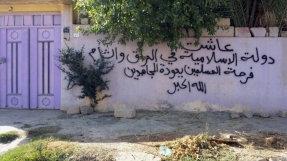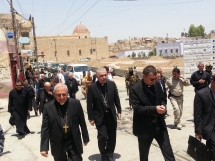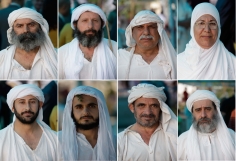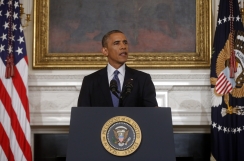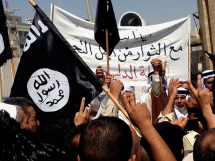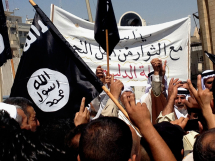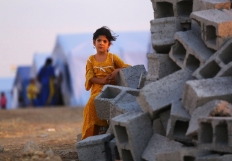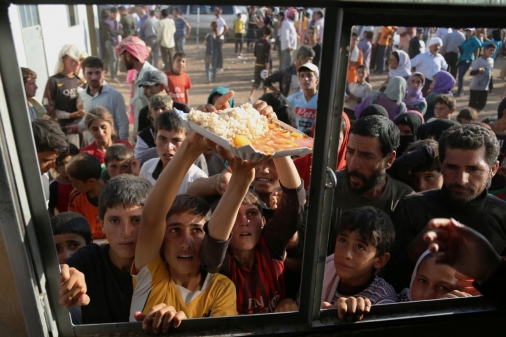
News reports show desperate refugees stranded on a mountain in northern Iraq clamouring to board aid helicopters as they deliver vital food and water.
In heartbreaking scenes, the refugees – most of whom are Yazidis – throw themselves on board, with some clinging to the side of the aircrafts as they lift off.
Taban Sami Shoresh, a humanitarian worker in the region who took part in an aid delivery, told the BBC that the number of people in desperate need is "horrific".
"All they wanted to do was get on the plane to be saved, and we could only take so much...It's heartbreaking to see," she said.
"There is a humanitarian crisis here and we desperately need the help from all directions."
On Tuesday, a helicopter carrying aid from Iraq's Kurdish government crashed after being overloaded with refugees. The pilot was killed, and at least 20 passengers injured. The survivors, which included journalists, were taken by rescue helicopters to Dohuk, near Irbil, the Kurdish regional capital.
Tens of thousands of Iraqi civilians are stranded on Sinjar Mountain after being driven from their homes by the Islamic State last week.
Many have now been without food and water for up to seven days, and are being forced to survive in temperatures of up to 45 degrees Celsius.
The UN has warned that the situation could escalate to a genocide "within days or hours".
The UN's special rapporteur investigating the Sinjar crisis said last night: "All possible measures must be taken urgently to avoid a mass atrocity and potential genocide within days or hours.
"Civilians need to be protected on the ground and escorted out of situations of extreme peril," she urged.
The UK has now delivered three rounds of air drops using RAF helicopters; while the US has carried out airstrikes on IS militants surrounding the mountain.
A statement from Downing Street insists that "urgent planning to get those trapped on the mountainside to safety will continue in the coming days between ourselves and US, the Kurdish authorities and other partners."










